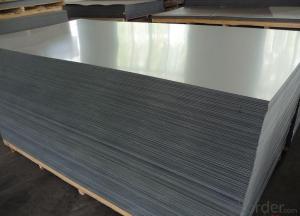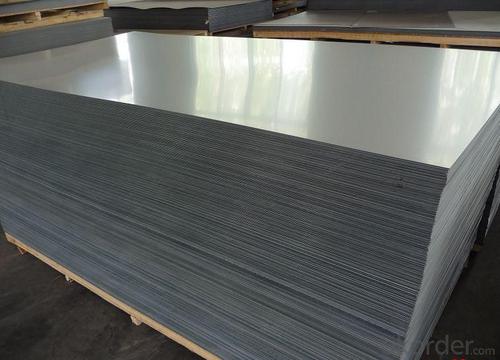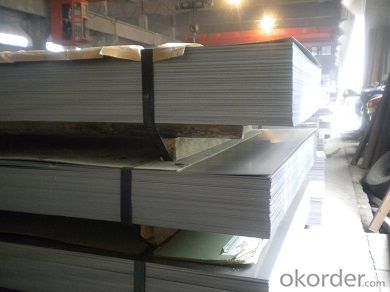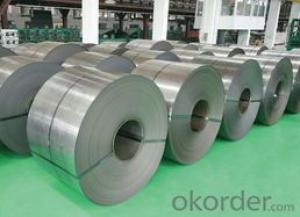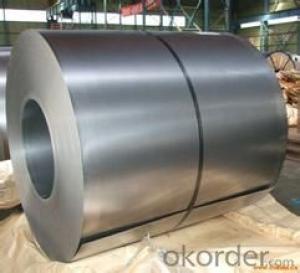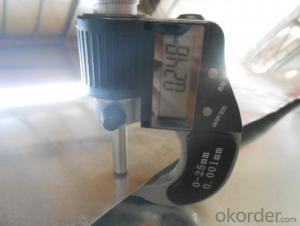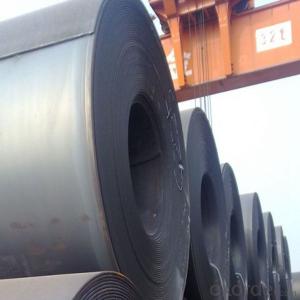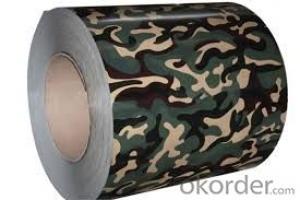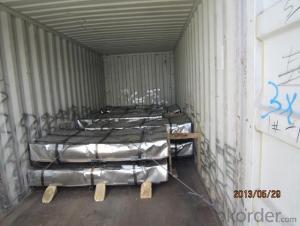High Quality Galvanised Steel Sheet
- Loading Port:
- Tianjin
- Payment Terms:
- TT OR LC
- Min Order Qty:
- 25 m.t.
- Supply Capability:
- 10000 m.t./month
OKorder Service Pledge
OKorder Financial Service
You Might Also Like
Galvanized Steel Sheet
goods | Hot dip galvanized steel coil and sheet |
Technical Standard: | JIS 3302 / ASTM A653 / EN10143/EN10327 |
Grade | DX51D / DX52D/ DX53D/ S250,280,320GD |
Width | 500/650/726/820/914/1000/1200/1219/1220/1250mm |
Thickness | 0.17-1.6mm (0.25-0.45mm is the most advantage thickness) |
Type of coating: | galvanized |
Zinc coating | Z60-120g/m2 |
Surface treatment | chromed / skin pass/ oiled /un oiled /slightly oiled/ dry |
Surface structure: | zero spangle / minimized spangle / regular spangle/ big spangle |
| MOQ | 5 Tons |
Package: | Properly packed for ocean freight exportation in 20''containers |
Price terms | FOB,CFR,CIF,CPT.CNF,CIP |
Payment terms | 30%TT in advance+70% TT or irrevocable 70%L/C at sight |
delivery time | 7days after receipt of 30% TT |
The industrial use
The application field | example illustration |
The electrical appliance industry | Air conditioner,Computer chassis, Plate for refrigerator,Outer shell of washing machine,kitchen fittings, The freezing chamber device |
The building industry | housetop,Lateral wall,doors and windows, gutter,Shutter doors and windows,Wall frame , Ceiling joist,ventiduct |
The agricultural and pastoral | Granary,silo,animal house,trough,flume,Greenhouse trellis,Baking equipment; |
The transport | railroad:The roof of the train,The internal frame of train,The road sign,The inner walls of the train; |
The equipment and structure | radiator,cold roll-formed ,Pedals and rack |
The material and mechanical properties
Material | Tensile test | ||||||
Rel (MPa) | Rm (MPa) | Elongation | |||||
1.8~<2.0 | 2.0~<2.5 | 2.5~<3.2 | 3.2~<4.0 | ≥4.0 | |||
SPHC | ≥270 | ≥29 | ≥30 | ≥31 | ≥32 | ≥32 | |
SPHD | ≥270 | ≥32 | ≥33 | ≥35 | ≥37 | ≥39 | |
SPHE | ≥270 | ≥33 | ≥35 | ≥37 | ≥39 | ≥41 | |
SS330 | ≥205 | 330~430 | ≥26 | ||||
SS400 | ≥245 | 400~510 | ≥24 | ||||
SAPH370 | ≥370 | ≥255 | ≥32 | ||||
- Q: Is 440 steel relatively strong or weak?
- Grade 440C is capable of attaining, after heat treatment, the highest strength, hardness and wear resistance of all the stainless alloys. Its very high carbon content is responsible for these characteristics, which make 440C particularly suited to such applications as ball bearings and valve parts. Grades 440A and 440B are identical except for slightly lower carbon contents (0.60 - 0.75% and 0.75 - 0.95% respectively); these have lower attainable hardnesses but slightly higher corrosion resistances. Although all three versions of this grade are standard grades, in practice 440C is more available than the A or B variants. A free-machining variant 440F (UNS S44020) also exists, with the same high carbon content as 440C. Again this grade is not readily available in Australia. Martensitic stainless steels are optimised for high hardness, and other properties are to some degree compromised. Fabrication must be by methods that allow for poor weldability and usually also allow for a final harden and temper heat treatment. Corrosion resistance is lower than the common austenitic grades, and their useful operating temperature range is limited by their loss of ductility at sub-zero temperatures and loss of strength by over-tempering at elevated temperatures. Key Properties These properties are specified for bar product in ASTM A276. Similar but not necessarily identical properties are specified for other products such as plate and forgings in their respective specifications.
- Q: How are steel coils protected from chemical damage?
- Steel coils are typically protected from chemical damage through the application of a protective coating or by storing them in a controlled environment to prevent exposure to corrosive substances.
- Q: I have a set of Ben Hogan Apex Plus Forged Irons, how can i figure out if the shafts are steel or graphite?
- Most steel shafts are stepped, meaning there will be a series of ridges that run down the lengeth of the shaft every few inches. Also, take a piece of metal and tap the shaft with it. If it makes a ping type of sound, its metal. If it makes a clunk sound, its graphite. Or, look out the window and ask the first person you see walking by. Unless they are younger that 10 years old, they should be able to tell you pretty easily.
- Q: This question gets beat to death from what ive seen online but im going to ask it since im searching for a few new knives. The question is as the titles states what is the best steel for a general purpose knife? I plan on buying several different types of knives, Folders, fixed blades, ect. I will carry them around with me all the time for basically anything i can think of to use it for. The reason i ask this question here is because looking online everyone has a differnt veiw. Some say stainless is too soft while others say carbon will chip and is more brittle. Even looking at just a single type of steel, carbon fort instance everyone has a different opinion as to whats best leaving me kind of lost for what i should get. Maybe the better word would be What is a good general purpose steel?. Any advice is much appreciated!!!!
- There is no right one answer, because the term all purpose knife covers a very broad spectrum. The same knife that would be good for wood carving will not be the same for food prep, and will not be the same for general utility purposes. I'll just give you my humble opinion. For fixed blade, hard use blades. Where you will be doing bush tasks like chopping, carving etc... 1095 carbon is generally the standard. Now, 1095 is a great steel, it isn't the BEST steel. There are other steels that can outperform it. But for the price and availability its hard to beat. For folders, I prefer a decent stainless, like aus 8. It holds a good edge, and will hold up to any tasks you need a folding knife to do. Contrary to what you will read on the internet, stainless steel is not all crap. Its just that cheap stainless is just that, cheap. Stainless steel is only as good as its tempering process, some companies such as boker do amazing things with the steel and make for an impressive blade. Just stay away from crap stainless. So to sum up. 1095 for fixed blades. aus 8 for folders. These are both common steels used by different companies. If you get caught up on finding the perfect steel, you may overlook more important aspects of the knife itself. Unless your fixed blade is mostly going to be a food processing, and skinning knife, then I would suggest a QUALITY stainless as well. Remember that all high carbon blades need to be kept oiled or they will start to rust very fast. Btw, I suggest anyone looking into knives to check out mora fixed blades. Incredibly cheap, sharp and durable. They are the rockstars of bushcraft.
- Q: What are the different types of steel coils?
- There are several different types of steel coils, including hot rolled coils, cold rolled coils, galvanized coils, and stainless steel coils.
- Q: Galvanized Steel or Standard Steel. This will be for the grilling surface.
- Bare steel. Galvanized or ANY coated racks will produce deadly chemicals in the food when heated. Galvanizing is a tin coating applied to the surface of the iron. Cadmium is a deadly chemical when ingested and is one of the chemicals on refrigerator racks. I'm not sure about Stainless Steel. The safest way is if in doubt DON'T.
- Q: I need to know a name of any site which provides information on Steel structures??
- www.okorder /
- Q: what is the difference between metal and steel
- well, steel is a type of metal. It's sort of like asking the difference between a bug and an ant, an ant is a bug, but not every bug is an ant. Likewise, steel is metal, but not all metal is steel. Gold is metal, Silver is metal, Iron is metal, Steel is metal.
- Q: How are steel coils inspected?
- Steel coils are inspected through a combination of visual examination, dimensional measurement, and non-destructive testing methods such as ultrasonic testing or magnetic particle inspection. These inspections help identify any surface defects, cracks, or abnormalities in the coils to ensure they meet quality standards and specifications.
- Q: What is the thickness range of steel coils?
- The thickness range of steel coils varies depending on the specific application and industry. However, generally speaking, steel coils can have a thickness range from as thin as 0.005 inches (0.13 mm) to as thick as 0.5 inches (12.7 mm) or more.
Send your message to us
High Quality Galvanised Steel Sheet
- Loading Port:
- Tianjin
- Payment Terms:
- TT OR LC
- Min Order Qty:
- 25 m.t.
- Supply Capability:
- 10000 m.t./month
OKorder Service Pledge
OKorder Financial Service
Similar products
Hot products
Hot Searches
Related keywords
